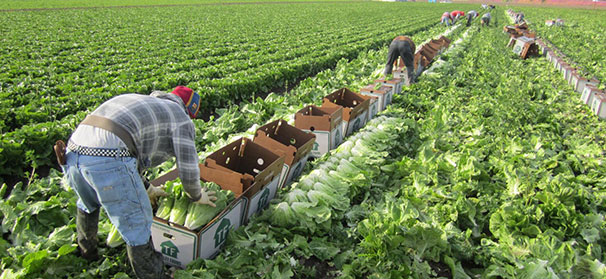Oct 19, 2018BREAKING NEWS: DOL stats show dramatic rise in H-2A ag labor use
The number of H-2A certified positions has tripled in the past 10 years, according to a series of reports from the Department of Labor (DOL).
DOL has just released the statistics for fiscal year 2018.
Ten years ago, DOL certified 86,014 H-2A positions. Today, that figure is well above 200,000.
Analyzing the DOL statistics through Sept. 30 that have just been released, American Farm Bureau Federation (AFBF) economist Veronica Nigh noted that in July 2018, after the third quarter H-2A program data was released by the U.S. Department of Labor’s Office of Foreign Labor Certification, AFBF predicted an extremely large number of positions would be certified in the fourth quarter, pushing DOL certifications over the 240,000 mark in fiscal year 2018.
With DOL certifying more than 49,000 positions in July, August and September – an increase of over 23 percent from fourth quarter 2017 – that projection has been proven correct., Nigh said.
A strong fourth quarter brought the total number of certified positions in FY 2018 to 242,762 – an increase of more than 21 percent over FY 2017.
The end of the fiscal year presents a good opportunity to compare growth in H-2A use among different states and crops, Nigh said.
In FY 2018, Georgia had the largest number of certified positions, surpassing Florida, which led the nation in certified H-2A positions in 2015, 2016 and 2017. Georgia was able to capture the title for the first time with an incredible 38 percent increase in certified positions between 2017 and 2018.
“As is highlighted in Figure 2, all of the top five H-2A utilizing states experienced position growth between 2017 and 2018. Even more incredible is the increase over the last five years.,” Nigh said.
Between 2014 and 2018, Georgia, Florida, Washington, North Carolina and California experienced growth rates of 212 percent, 125 percent, 174 percent, 50 percent and 213 percent, respectively. Louisiana, Kentucky, New York and Arizona, all among the top 10 states over the last five years, also experienced growth in FY 2018, increasing by 14 percent, 3 percent, 11 percent and 24 percent, respectively.
The state of Michigan completes the top 10 list with 8,359 positions, a growth of 24 percent from 2017. Michigan’s position as the seventh-largest user of the H-2A program is especially impressive given that it only just made the top 10 list for the first time in 2017.
Among crops, growers of berries continue to be the largest users of the H-2A program. Growers of blackberries, blueberries, cranberries, raspberries and strawberries, the primary berry crops, had more than 25,000 positions certified in FY 2018 – a 16 percent increase over FY 2017. The same crops have been in the top five for the last three years – berries, general farm work, tobacco, apples and melons – though the relative order has changed significantly.
In FY 2018, after berries, general farm workers were the second most requested and certified worker position. In FY 2018, DOL certified more than 100 percent additional general farm worker positions than in FY 2017. The number of certified positions for tobacco, apples and melons positions grew by 49 percent, 18 percent and 29 percent, respectively, from FY 2017 to FY 2018.
Nigh said DOL’s certifications of nearly a quarter of a million positions in FY 2018, is 108 percent more than the number of positions certified in FY 2014, just five years ago, ands more than double the number of positions in a very short time span – with no sign of a slow down any time soon.























